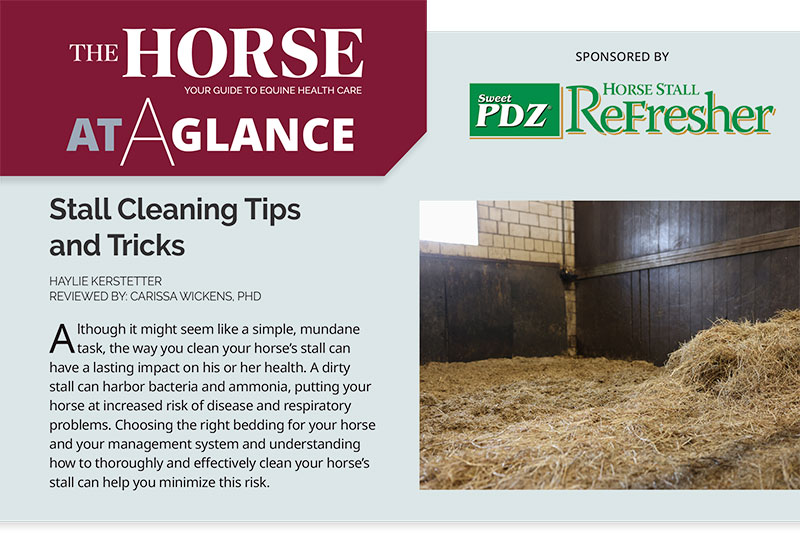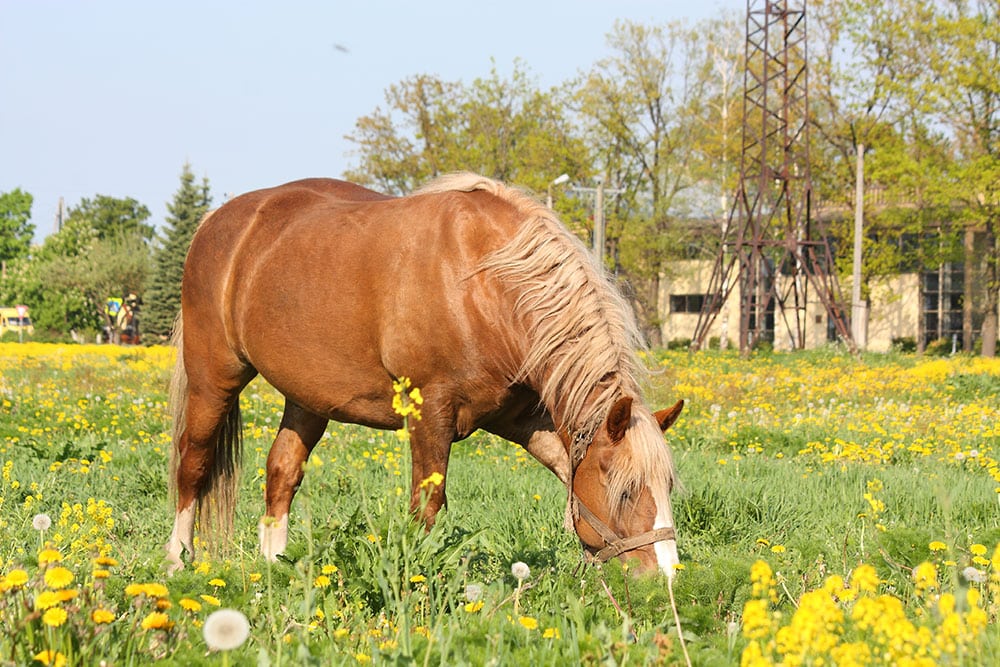
Running Hot and Cold: Caring for Horses During Weather Changes
Horses are very adaptable and typically can handle significant temperature changes; however, when we alter their natural condition, they might struggle.
Horse-health-problem risk factors, prevention, diagnosis, and treatment

Horses are very adaptable and typically can handle significant temperature changes; however, when we alter their natural condition, they might struggle.

Obesity could cause increased damage to your horse’s joints. Here’s why.

Learn how to choose the right bedding, effectively clean your horse’s stall, and protect his airways from ammonia. Sponsored by Sweet PDZ.

Equine practitioners are using recent research in their day-to-day practice to diagnose PPID, EMS, and ID.

Black cherry leaves are blowing into a horse pasture, and the owner is worried they will put her horses’ health at risk.

Blood insulin levels can warn of increased risk of laminitis in obese horses and ponies and spur owners to mitigate it.

Newly identified liver viruses in horses might be more common than we realize.

Hyperinsulinemia-associated laminitis has become a great risk for the health and welfare of domestic horses. Although medications for this condition exist, they cannot replace good management.

Learn how to design a diet for horses suffering or recovering from equine odontoclastic tooth resorption and hypercementosis (EOTRH).

One expert explains why closing your barn doors and windows during the winter might not be ideal for your horse’s health.

Poor air quality from wildfire smoke can be very dangerous for horses. An equine internal medicine specialist offers advice.

These difficult-to-diagnose conditions can undermine a horse’s balance and coordination.

Horses with ID are at greater risk of developing laminitis. Knowing if your horse has a metabolic problem can help you prevent this painful condition.

Understanding how your growing foal’s digestive system works can help you recognize and avoid potential problems.

One equine nutritionist explains how to ensure your horse’s diet does not contain dangerous levels of sugar.

Knowing the causes of colic in horses, treatment options, and why referral might be necessary can give your horse a better outcome in a colic emergency.
Stay on top of the most recent Horse Health news with
"*" indicates required fields